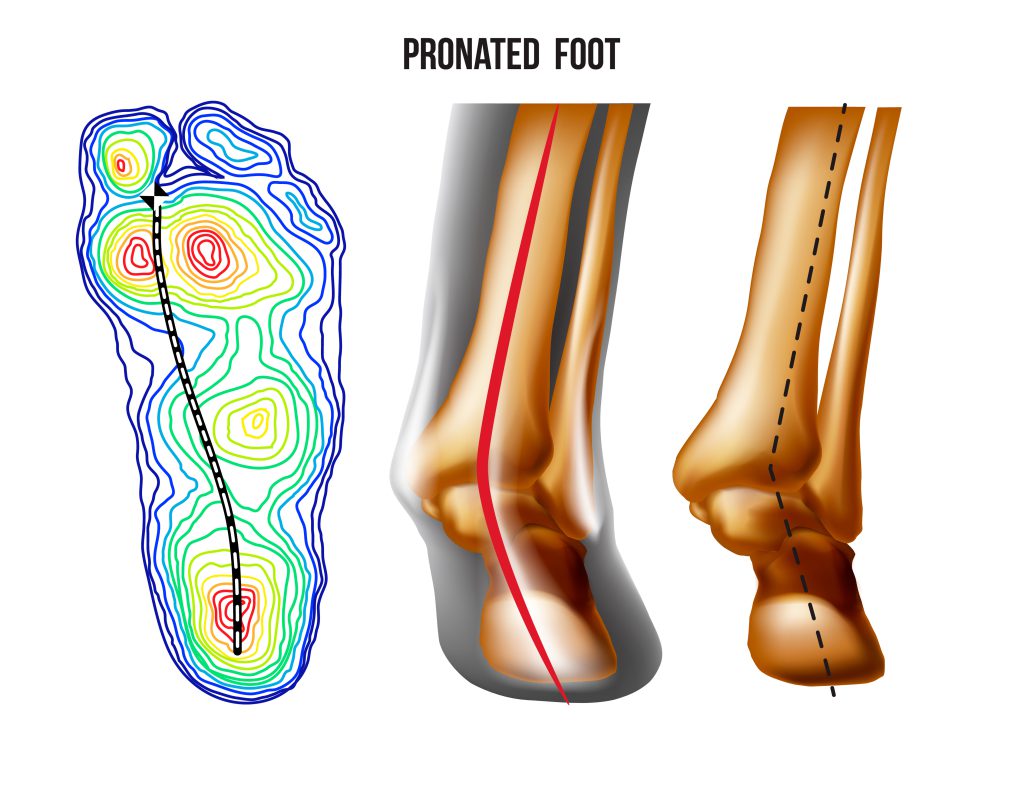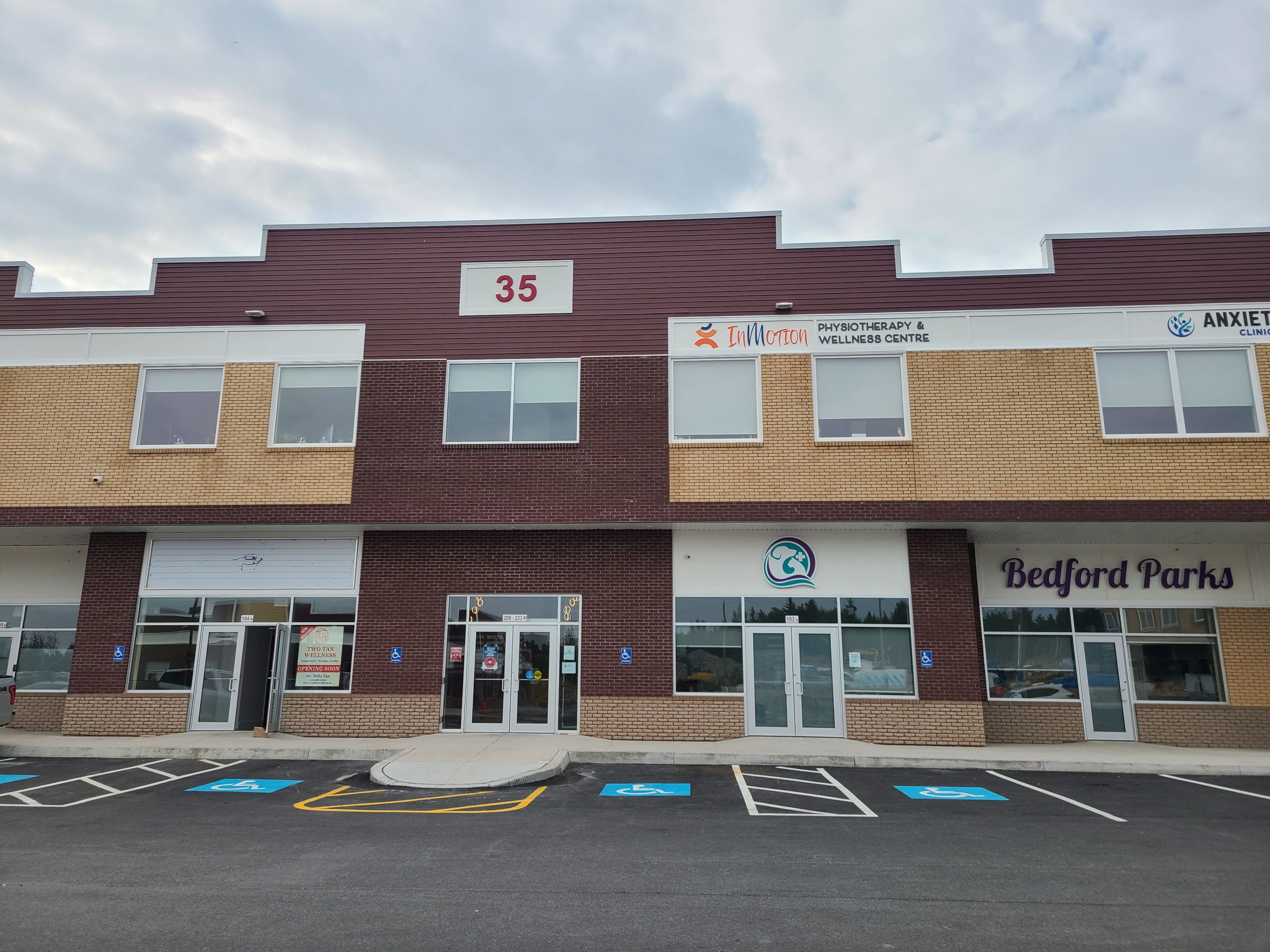Your Physiotherapist Can Set You Up for Marathon Success
If you are new to running marathons you might be surprised to know that being prepared for marathon running includes meeting with your doctor and physiotherapist in advance of starting your training. Once your doctor agrees that you are medically fit for the challenge you should book an appointment meet with your physiotherapist who will determine if you are physically ready to train. Your physiotherapist will examine your body and identify potential problems that could affect your running success. The following topics are very likely to come up at your appointment.
The Importance of Foot Pronation

Running is one of the simpler sports in terms of logistics — lace up a pair of sneakers and off you go!
Heel strike, push off, stride, and arch are all foot-focused terms you might have heard about when trying on a pair of shoes at the store. But these all boil down to understanding the key element of pronation, aka the natural side-to-side movement of the foot.
Pronation is a natural and normal movement of the foot that occurs during foot landing while running or walking. Simply put, it’s your ankle and arch rolling or tipping inwards slightly, creating some shock absorption as your foot hits the ground after each step. Your therapist will determine how your feet pronate and can teach you ways to protect yourself from the conditions that can result from poor foot pronation. When the foot and ankle have been out of alignment for some time muscle weakness may have already occurred in your feet and up the legs.
Physiotherapy can help address these weak areas by providing a strengthening exercise program to get those muscles stronger and working, as they should. You may also require continued treatments to correct your pronation.
The Muscular System
While running is a whole-body workout, you primarily use your core and lower body muscles. Keeping these muscles balanced and working together will help prevent injury. It’s important to keep these key muscles strong and healthy since they’re responsible for stability, proper form, and spinal alignment — all of which help you perform at your highest capacity with maximum efficiency while preparing for a marathon.
Physiotherapy can help address these weak areas of muscles with a stretching and strengthening program specifically developed for your individual body weaknesses and strengths.
Joints and Running Mechanics
Many joints are involved and affected when you are running and joint injuries are common for runners. An injury to the foot, ankle, knees, or hips can sideline runners of any experience level. This is a good time to learn about how to look after your joints.
Your physiotherapist can assess your joints and your running mechanics prior to you beginning to train. During this exam issues such as hip adduction or over-striding may be detected. She will advise you on how best to correct these issues and provide you with preventative exercises to avoid injuries during your long runs.
It is important that you listen to your body as you take on the challenge of being a marathon runner. Your physiotherapist can teach you what to expect from your joints as you begin this new athletic activity.

Proper Posture
Proper posture is important for everyone. It allows your nerves to freely flow from your brain to your organs, muscles, joints, vessels and more. It allows for room for your organs to freely function. It allows for proper movement of your muscles, joints and ligaments.
For marathon runners a posture assessment is very helpful to prevent injuries. Poor running posture may cause overuse injuries such as plantar fasciitis, Achilles and hamstring injuries, IT band pain, knee pain, and low-back pain. Posture also affects efficiency. Good running posture enables you to use less energy to run a given distance than if running with poor posture.
Your Physiotherapy Assessment and Treatment Plan
Your physiotherapy assessment will be based on your own personal physical strengths and limitations to provide the best preparation for marathon training possible and to support you while you train as well.
When it Comes to Pain…Listen to Your Body
Because marathon running is very rigourous it is very likely that that you will feel some level of discomfort during marathon training. Though many aches and pains of the muscles, bones and joints can be common, some of these symptoms can also be warning signs that a more serious injury has occurred. It’s important for people who participate in marathons to be assessed by a professional when experiencing discomfort and unusual pain.
Sports Massage Therapy Provides Relief for Marathon Runners
Sports massage therapy has numerous physical as well as psychological benefits for marathon runners. Our massage therapists can support your marathon training in the following ways:
- treats specific muscular tightness
- decreases tightness
- helps maintain and condition muscle tissues
- decreases the recovery time between training sessions
- prevents adhesions forming in the muscles from micro-trauma
- reduces pain and inflammation
- promotes improved circulation
- relaxation – an often overlooked but extremely important part of training
Don’t forget to include massage in your training schedule. You will be thankful that you did.







